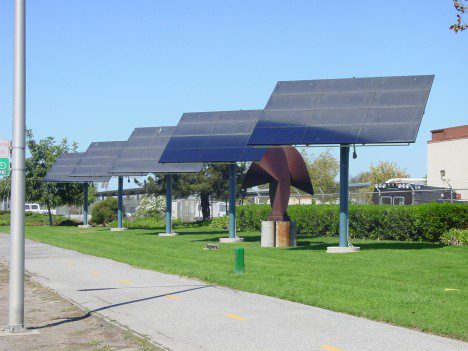
Recent Advocacy Efforts on Behalf of Clean Energy Supporters in California
The Clean Coalition has voiced our opinion on these recent items in California.
As part of the Clean Coalition’s mission to make clean local energy accessible now, we are constantly weighting in on clean energy policy matters at both the state and federal level. In California, here are a few recent items we voiced our opinion on:
Expedite the 33% Renewable Portfolio Standard (RPS) legislation. In early February, the Clean Coalition sent a letter to Senate President Pro Tem Darrell Steinberg recommending that the 33% by 2020 RPS legislation (SB 23, Simitian) be expedited with the goal that the legislation be sent to the Governor’s desk within the next 2 months. On Feb 1, the bill was converted to SBX2 and put on the fast track in the legislature. Download a copy of the letterhere.
Appoint Clean Energy Leaders to the Public Utilities Commission.In early February, the Clean Coalition urged Governor Jerry Brown to appoint proven clean energy leaders to the Public Utilities Commission (CPUC). The CPUC plays a crucial role in the development and regulation of the state’s energy industry; proper leadership is required to develop reliable and predictable in-state investment for local economies through clean energy generation. In particular, we supported the appointment of both Julia Levin and John Geesman. Download a copy of the letterhere.
Support for the Reauthorization of the Public Interest Energy Research (PIER) program. In late February, the Clean Coalition sent a letter to the Senate’s Energy, Utilities and Communications Committee in support of the long-term re-authorization of funding for the PIER program. The PIER program is a small investment of public funds relative to the millions in ratepayer savings that may result in the coming years from the program. While the Clean Coalition focuses primarily on policies for cost-effective clean energy deployment, we recognize the essential role that research, development and demonstration play in achieving a lasting economic transformation and thus support the PIER Program’s reauthorization through 2020 at current funding levels. Download a copy of the letterhere.

